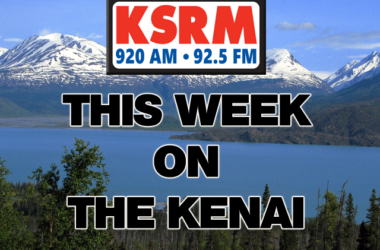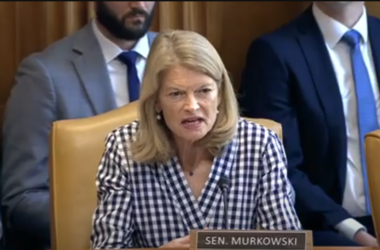Governor Mike Dunleavy held a press conference on Tuesday, Feb. 27 in which he vowed to veto the education bill that recently passed the Alaska House and Senate unless inclusions from his previously proposed budget are not added back in. Those additions are largely focused on teacher retention by way of annual bonuses, and support for Alaska charter schools and the Alaska Reads Act.
The bill, which passed the house last week and was concurred by the Senate shortly thereafter, includes a $680 increase (roughly 11%) to the Base Student Allocation (BSA)–money the state gives school districts per student–as well as extra money for student transportation and reading intervention for K-3 students. According to Gov. Dunleavy, however, the bill still “falls short” of improving outcomes for students.”
Since his proposed budget was released, the Governor has pushed for teacher retention over an infusion of cash into school districts–an increase to the Base Student Allocation (BSA). During the press conference, Gov. Dunleavy leaned on teacher retention as a common sense conclusion not reached by simply adding money to school districts but would need something more, like his proposed bonuses which range from $5,000-$15,000. “We got half the job done. But if it’s just going to be about money and nothing else, I’m not interested in having this bill become law.”
Regarding charter schools in Alaska, which recent studies indicate are the best in the nation, Dunleavy says the bill in its current form is not enough and is potentially an attempt by special interests to undermine the state’s charter school system itself. “…you would tend to think there would be a chatter, a number of folks and special interests and others saying, well, that’s working, we’ve got to expand that. Not really. Not really,” the Gov. said during the press conference. “The most important thing for special interests was not to build upon something that is succeeding beyond anyone’s wildest dreams. And that’s not an exaggeration. Succeeding beyond anyone’s wildest dreams. The attempts to expand that were met with at best resignation and at worst undermining efforts to do that.”
Dunleavy emphasized that unless the bill is revisited in the next two weeks by the legislature, and provisions for teacher retention, charter schools, and reading are not put back in, he will not sign the bill into law. “We have 15 days before it becomes law or before I veto. And I made it clear that if there are not certain elements in that bill I won’t sign into law, I’ll veto it.”
A 40-vote majority is required by a joint session of the House and Senate to override a gubernatorial veto.






